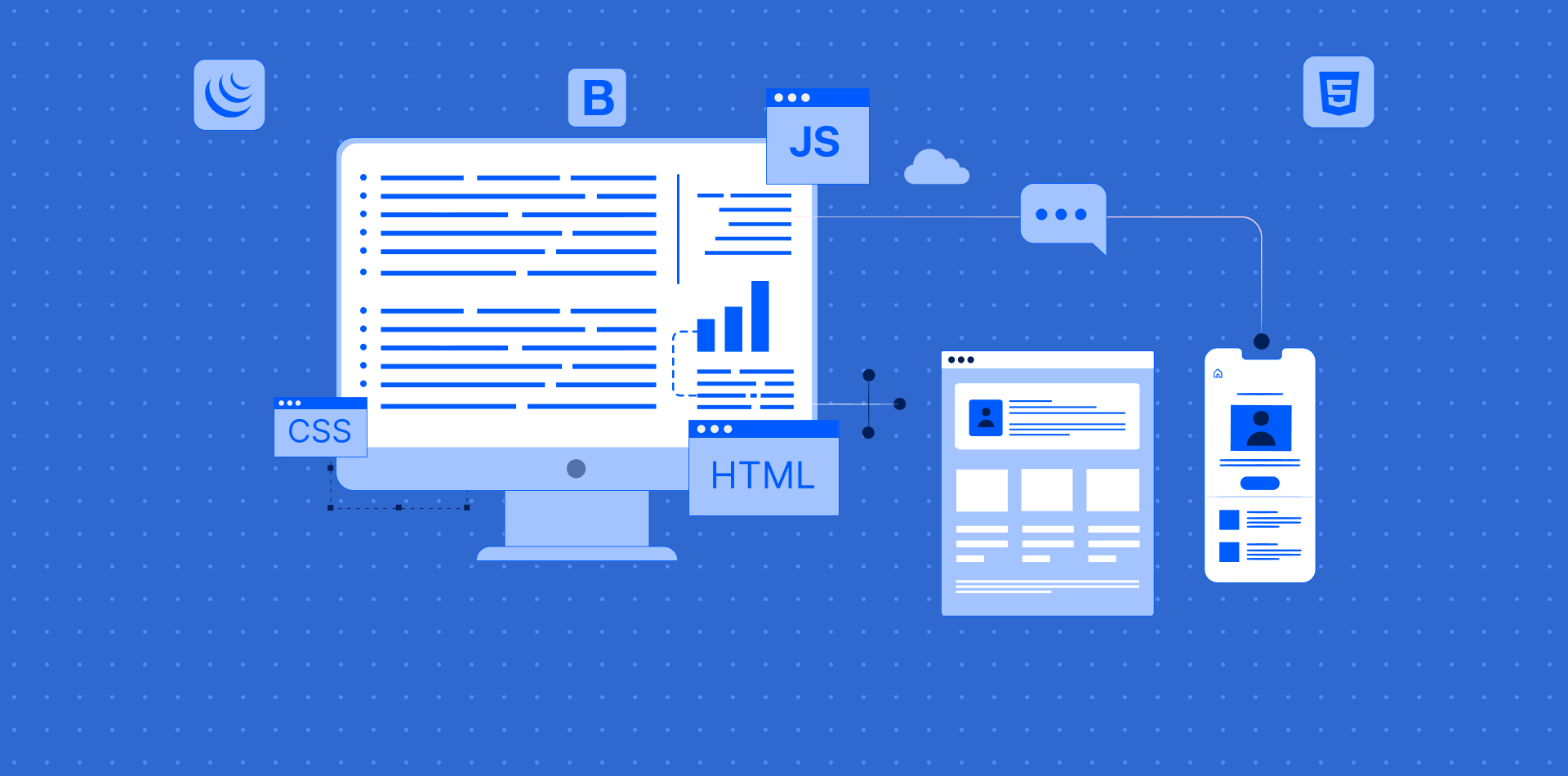Custom Front End Development
Our custom Front-end development services focus on creating design concepts and UI elements that breathe life into your “Dream Vision.” We transform concepts and elements into engaging, interactive websites, apps and products by utilizing HTML, CSS, and JavaScript and up-and coming emerging technology.
We let our clients work closely with our expert team of designers, the UI/UX team and back-end developers to integrate design, functionality and data for a seamless web presence.
At TheFinch Design, frontend development experts understand how to bridge the gap between aesthetics and technical performance for superior performance.

We provide top-tier Frontend Development Services for engaging products that are quick to launch and quicker to convert.
The USP of
Our Frontend Development
Services
As a seasoned front-end development team, we understand the intricacies of crafting a unified experience, combining captivating UI with uninterrupted transitions, fluid navigation and consistent compatibility across devices. Our focus on fluid navigation ensures that users can effortlessly interact with websites and applications with cross-browser compatibility.
Performance Optimization
Improving website or application load times and performance by optimizing code, images, and other resources
Responsive Web Design
Ensuring that websites and applications are optimized for various devices, screen sizes, and resolutions.
Liquid Layout Design
Expertise in liquid layout design approach where the digital product adapts to screen sizes, ensuring consistency across devices by auto-resizing content
Mobile-first Design
Prioritizing mobile user experiences by designing and developing websites and applications primarily for mobile devices.
Web Accessibility
Creating websites and applications that are accessible to users with disabilities, complying with accessibility standards like WCAG.
Cross-browser Compatibility
Ensuring that websites and applications function consistently across different browsers, such as Chrome, Firefox, Safari, and Edge.
Seamless Backend Integration
Translating frontend designs into server logic, API and database with backend developers
The Technology
Stack We Use
Technology keeps evolving as do we. Our ever-evolving technology stack includes a combination of programming languages, libraries and frameworks necessary to deliver appealing, interactive and user-friendly solutions.
HTML/CSS
HTML 5
CSS Framework
Foundation
Bootstrap
Bulma
CSS Preprocessors
Sass
Stylus
LESS
JavaScript Libraries
jQuery
Moment.js
Lodash
Javascript Framework
React
Angular
Vue.js
Version Control
Git
Mercurial
Testing Frameworks
Jest
Mocha
Jasmine
Crafting Exceptional User Experiences
We employ the best of the old and the latest to deliver seamless, scalable, interactive and responsive designs for exceptional user experiences. Through continuous collaboration with our clients, we understand their “Vision” and their target audience’s “Needs” for perfect alignment through design.
TheFinch Your Trusted UX Design Partner

Frequently Asked Questions
What is front-end development?
Also known as client-side development, Front-end development is a process where you design and develop parts of a website like buttons, user interface, text boxes, etc. It is a crucial part of web-development where you design and program to provide a seamless experience to users.
What is front-end UI UX?
Front-end UI UX is an essential part of the front-end development where developers focus on the creative and technical process of UI UX design of the website. They tend to make it more user-friendly and enjoyable.
How much does a front-end developer cost?
A front-end developer cost depends on many aspects such as the experience level of the developer as the beginners cost around $10-$30 per hour or $50,000 to $70,000 per year. Intermediate developers cost around $30-$50 per hour or $80,000 to $90,000/year while the full-stack developer is an expensive one which costs $50-$100 or $110,000 to $125,000 per annum. Front-end developer cost also depends on location of company or developers, project complexity, technology requirement. For further details you can contact us.
Which languages and frameworks do you use for front-end development?
At TheFinch Design, all our Frontend Development projects utilize a combination of core languages and popular frameworks.
HTML 5 tops the list of the most popular front-end technology. The list also includes React.js, Angular.js, Vue.js, Flutter, Next.js. Flutter is the latest tech in list with being released in 2017. You should consider some points like overall project size, support, maintenance, Flexibility, Scalability, Popularity of tech before choosing what’s the best for you.
Additionally, we work with CSS preprocessors like Sass or LESS to further enhance our CSS capabilities and streamline the development process.
How do you ensure cross-browser compatibility and responsive design?
Cross-browser compatibility and responsive design for Frontend Development is a top priority for our team
We employ progressive enhancement and feature detection techniques to deliver a consistent experience across various browsers such as Chrome, Firefox, Safari, and Edge.
For responsive design, we use fluid grids, flexible media, and CSS media queries to ensure that our websites and applications adapt seamlessly to different devices, screen sizes, and resolutions, providing an optimal user experience on all platforms.
Can you provide examples or case studies of successful front-end development projects you have completed?
Our portfolio showcases several successful front-end development projects across various industries.
One notable example is a responsive e-commerce website we developed for a leading fashion brand. We employed a mobile-first design approach, optimized performance, and ensured cross-browser compatibility.
Our team collaborated closely with the client and back-end developers, integrating the front-end with their existing CMS and e-commerce platform. The result was a visually appealing, user-friendly, and accessible website that increased user engagement and sales conversions.